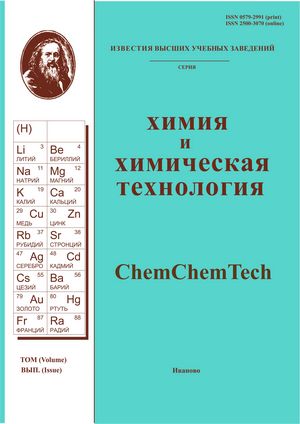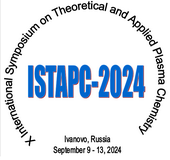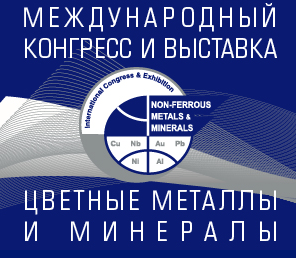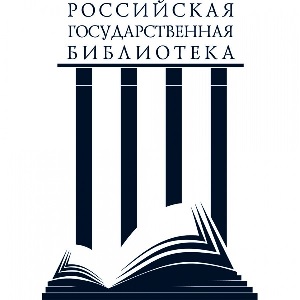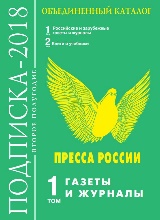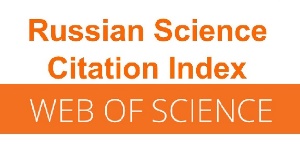БИОРАЗЛОЖЕНИЕ В ПОЧВЕ МАТЕРИАЛОВ НА ОСНОВЕ КРИОГЕЛЕЙ ПОЛИВИНИЛОВОГО СПИРТА И КРАХМАЛА
Аннотация
В работе предложено получение новых биоразлагаемых полимерных материалов на основе синтетического поливинилового спирта и растительных крахмалов. Вязкоупругие криогели каучукоподобной консистенции получали после цикла замораживания - размораживания трехкомпонентных растворов, содержащих поливиниловый спирт, крахмал и воду. Особый интерес к использованию криогелей обусловлен их экологической безопасностью, наличием упругих свойств и простым способом их получения. При исследовании упругих свойств криогелей отмечено увеличение модуля упругости трехкомпонентных криогелей по отношению к двухкомпонентным. Введение наполнителя (почвы) в матрицу формируемого криогеля приводит к дополнительному увеличению модуля упругости с 5 кПа до 280 кПа. Установлено, что при хранении трехкомпонентных криогелей в воде происходит уменьшение их массы вследствие вымывания из многокомпонентного криогеля продуктов биоразложения крахмала. Показано частичное разложение естественной почвенной микрофлорой полученных полимерных материалов: за 14 сут сухая остаточная масса полимера в почве составила 19,6-59,0% от исходной для криогелей с кукурузным крахмалом, 12,5-57,0% - с картофельным, снижаясь при увеличении содержания крахмала. Роль почвенной микрофлоры в деструкции криогелей подтверждается ростом численности сначала амилолитической, а затем аммонифицирующей групп микроорганизмов, что сопровождается изменением рН почвы. Отмечено визуальное изменение материалов после контакта с почвой: истончение слоя, появление пор, снижение механической прочности. Появление в почве продуктов деструкции криогелей снизило всхожесть семян белой горчицы на 2-12% относительно контроля. Криоструктурирование почвы (закрепление верхнего почвенного слоя) двухкомпонентными криогелями ПВС или картофельного крахмала, а также трехкомпонентным криогелем (ПВС – крахмал – вода) повысило фитопродуктивность: сухая надземная масса той же горчицы была выше на 3,2-9,4% относительно контроля.
Для цитирования:
Овсянникова В.С., Фуфаева М.С., Ким Е., Алтунина Л.К. Биоразложение в почве материалов на основе криогелей поливинилового спирта и крахмала. Изв. вузов. Химия и хим. технология. 2023. Т. 66. Вып. 11. С. 126-134. DOI: 10.6060/ivkkt.20236611.6t.
Литература
Tikhanovsky A.N. Problems and methods of biological reclamation of technogenically disturbed lands in the Far North. Usp. Sovremen. Estestvozn. 2017. N 2. P. 43-47 (in Russian). DOI: 10.21603/2542-2448-2017-1-43-47.
Eliseyev A.V., Cheveryov V.G. Method for protecting dispersed soils from erosion. Kriosfera Zemli. 2008. V. 8. N. 3. P. 36-40 (in Russina).
Kasyanov A.E., Zver’kov M.S. Effect of polyacrylamide on soil spattering. Prirodoobustroyistvo. 2015. N 3. P. 30-34 (in Russian).
Altunina L.K., Svarovskaya L.I., Filatov D.A., Fufayeva M.S., Zhuk E.A., Bender O.G., Sigachev N.P., Konovalova N.A. Field experiments on the use of cryogels to protect soils from water and wind erosion. Probl. Agrokhim. Ekol. 2013. N 2. P. 47-52 (in Russian).
Studenikina L.N., Korchagin V.I., Iushin V.O., Melnikov A.A. Effect of the nature of the filler on the properties of the "polyvinyl alcohol : polysaccharide" composite. Sorpt. Khromatogr. Prots. 2021. V. 21. N 1. P. 111-118 (in Russian). DOI: 10.17308/sorpchrom.2021.21/3226.
Papkina V.Yu., Malinkina O.N., Shipovskaya A.B., Grebenyuk L.V., Stepanov M.V. Properties, degradation in the soil and phytotoxicity of starch composites with polyvinyl alcohol. Izv. Saratov Univ. Khimiya. Biol. Ekol. 2018. V. 18. N. 1. P. 25-35 (in Russian). DOI: 10.18500/1816-9775-2018-18-1-25-35.
Mirzoirova V.A., Mukhamediev M.G. Obtaining biode-gradable composite films based on starch and polyvinyl alcohol. Universum: Khimiya Biolog. Electron. Sci. J. 2022. 11 (101). (in Russian). DOI: 10.32743/UniChem.2022.101.11.14512.
Pavlyonok A.V., Davydova O.V., Drobyshevskaya N.E., Poddenezhny E.N., Boyko A.A. Manufacturing and prop-erties of biodegradable composite materials based on polyvinyl alcohol and starch. Vestn. GGTU im. P. O. Sukhogo. Materialovedenie. 2018. N 1. P. 38-46 (in Russian).
Fomina A.P., Lesovoy D.E., Artyukhov A.A., Shtilman M.I. Biodegradable polymeric hydrogels based on starch and polyvinyl alcohol derivatives. Usp. Khim. Khim. Tekhnol. 2011. V. XXV. N 3 (119). P. 83-87 (in Russian).
Drozdova M.G., Zaytseva-Zotova D.S., Akasov R.A., Golunova A.S., Artyukhov A.A., Udartseva O.O., Andreeva E.R., Lisovyy D.E., Shtilman M.I., Markvicheva E.A. Macroporous modified poly (vinyl alcohol) hydrogels with charged groups for tissue engineering: Preparation and in vitro evaluation. Mater. Sci. Eng. 2017. V. 75. P. 1075-1082. DOI: 10.1016/j.msec.2017.03.017.
Poddenezny E.N., Boyko A.A., Alekseenko A.A., Drobyshevskaya N.E., Uretskaya O.V. Progress in biodegrada-ble composite materials based on starch (review). Vestn. GGTU im. P. O. Sukhogo. Materialovedenie. 2015. N 2. P. 31-41 (in Russian).
Grazhulevichene V., Augulis L., Grazhulevichius Yu.V., Kapitanovas P., Vedegyte Yu. Biodegradable starch, polyvinyl alcohol and peat composites for agricultural use. Zhurn. Prikl. Khim. 2007. V. 80. N 11. P. 1904-1907 (in Russian). DOI: 10.1134/S1070427207110304.
Teptereva G.A., Pakhomov S.I., Chetvertneva I.A., Karimov E.H., Egorov M.P., Movsumzade E.M., Evstigneev E.I., Vasiliev A.V., Sevastyanova M.V., Voloshin A.I., Nifantyev N.E., Nosov V.V., Dokichev V.A., Babaev E.R., Rogovina S.Z., Berlin A.A., Fakhreeva A.V., Bau-lin O.A., Kolchina G.Yu., Voronov M.S., Staroverov D.V., Kozlovsky I.A., Kozlovsky R.A., Tarasova N.P., Zanin A.A., Krivoborodov E.G., Karimov O.Kh., Flid V.R., Loginova M.E. Renewable natural ra w materials. structure, properties, application prospects. ChemChemTech [Izv. Vyssh. Uchebn. Zaved. Khim. Khim. Tekhnol.]. 2021. V. 64. N 9. P. 5-122. DOI: 10.6060/ivkkt.20216409.6465.
Lozinsky V.I. Cryostructuring of polymeric systems. 55. Retrospective view on the more than 40 years of studies performed in the A.N. Nesmeyanov Institute of Organoelement Compounds with respect of the cryostructuring processes in polymeric systems. Gels. 2020. V. 6. N 3. P. 29. DOI: 10.3390/gels6030029.
Abdullah Z.W., Dong Y. Biodegradable and Water Re-sistant Poly(Vinyl) Alcohol (PVA)/Starch (ST)/Glycerol (GL)/Halloysite Nanotube (HNT) Nanocomposite Films for Sustainable Food Packaging. Front. Mater. 2019. V. 6. N 58. DOI: 10.3389/fmats.2019.00058.
Manzhai V.N., Fufaeva M.S., Kashlach E.S. Relaxation of Mechanical Stress in Poly(vinyl alcohol) Cryogels of Differ-ent Compositions. Chin. J. Polym. Sci. 2023. 41. P. 442-447. DOI: 10.1007/s10118-022-2889-8.
Krut’ko E.T., Prokopchuk. N.R., Globa A.I. Technology of biodegradable polymeric materials. Minsk: BSTU. 2014. 105 p. (in Russian).
Koryagin Yu.V., Koryagina N.V. Soil microbiology. Penza: RIO PGSKhA. 2016. 205 p. (in Russian).
Goncharova V.G., Grudinina V.V., Chudinova O.N., Cheredova T.V. Determination of soil phytotoxicity at un-authorized dumps in Ulan-Ude. Nauch. Trudy KubGTU. 2019. N 3. P. 794-802 (in Russian).
Tishin A.S., Tishina Yu.R. Methods of soil phytotesting: a review. Mezhdunar. Issled. Zhurn. 2021. N 11 (113). Pt. 2. P. 93-99 (in Russian). DOI: 10.23670/IRJ.2021.113.11.052.
Studenikina L.N., Domareva S.Yu., Repin P.S., Zuyeva N.V., Matveyeva A.V., Mel’nikov A.A. Features of hydro-lytic and enzymatic degradation of polyvinyl alcohol-based materials. Vopr. Sovrem. Nauki Praktiki. 2022. N 4 (86). P. 34-33 (in Russian). DOI: 10.17277/voprosy.2022.04.pp.034-044.

